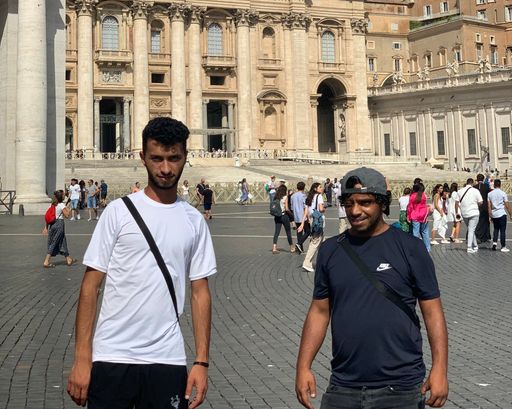More than 60 women from the Palestinian village of Umm al-Khair in the occupied West Bank have started a hunger strike demanding the return of the body of Awdah Hathaleen, a prominent local activist who was killed in broad daylight by an Israeli settler on Monday in the heart of his village.
Hathaleen, 31, was fatally shot on July 28 when Israeli settler Yinon Levi opened fire near the village where the settlers were trying to evict the Palestinians.
Levi, previously sanctioned for violent attacks against Palestinians, was briefly detained but released to house arrest despite eyewitness testimony and video evidence implicating him in the killing.
As Hathaleen’s body remains in Israeli custody, police have reportedly conditioned its release on a night-time burial outside the village, with no more than fifteen attendees.
Hathaleen’s family rejected the stipulations, calling them degrading. “Awdah is not a thief. We will not bury him in the dark,” one relative told local media.
The hunger strike, now in its fifth day, is being led by women from across the community, ranging in age from teenagers to elderly relatives of the slain activist.
Organisers say the protest will continue until Hathaleen’s body is returned for a proper burial and all villagers detained after the killing are released.
At least two women have required medical attention since the strike began.
‘Cold-blooded’ act
Awdah Hathaleen, a father of three and a well-known English teacher, had gained international recognition as one of the main voices in No Other Land, a documentary on Israeli settler violence in the occupied West Bank that won awards, including the 97th Academy Awards and the Berlin Film Festival.
His killing has sparked condemnation from human rights groups and renewed scrutiny of growing settler impunity under Israeli military rule.
On Wednesday, Amnesty International condemned the killing of Hathaleen, describing it as a “cold-blooded” act and a stark reminder of the ongoing violence Palestinian communities endure.
Erika Guevara Rosas, the organisation’s director for research and advocacy, called for an independent international investigation into his death and the broader issue of illegal Jewish settler violence in the occupied West Bank.
Rosas criticised Israeli authorities for what she termed a “deliberate failure” to investigate settler attacks, highlighting the systemic impunity that enables such violence against Palestinians in the occupied West Bank, including East Jerusalem.
The Israeli military has not commented on the hunger strike.
Human rights monitors warn that the denial of burial rights is part of a broader tactic of collective punishment, increasingly used in the occupied West Bank since the escalation of hostilities in October 2023.
"Israeli settlers and security forces have intensified their killings, attacks and harassment of Palestinians in the occupied West Bank, including East Jerusalem, in the past weeks," Thameen Al-Kheetan, a spokesperson for the UN Office of the High Commissioner for Human Rights (OCHCR), said.
About 30,000 Palestinians have been forcibly displaced in the north of the occupied West Bank since the Israeli military launched its "Iron Wall" operation.
It is contributing to the ongoing consolidation of annexation of the West Bank, in violation of international law, the OHCHR said.
More than 1,000 Palestinians have been killed since October 7, 2023, by Israeli forces and settlers in the occupied West Bank, including East Jerusalem. Israel has killed more than 60,000 people in Gaza during the same period.
















